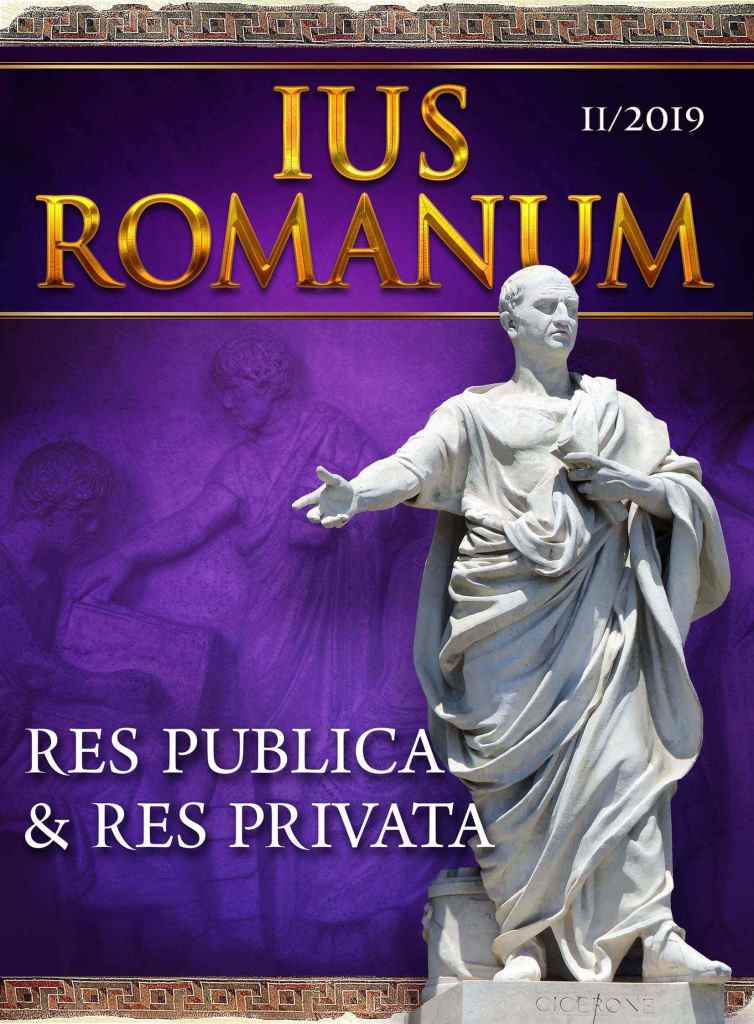RES PUBLICA - RES PRIVATA:L’USO DELLE CATEGORIE PRIVATISTICHE NELLA COSTRUZIONE DEL DIRITTO DELLE STRUTTURE AMMINISTRATIVE ROMANE NEL PRIMO PRINCIPATO
RES PUBLICA - RES PRIVATA: USE OF PRIVATISTIC CATEGORIES IN LAW FOR CONSTRUCTION OF ROMAN ADMINISTRATIVE STRUCTURE AT THE BEGINNING OF THE PRINCIPATE
Author(s): Antonio PalmaSubject(s): Law, Constitution, Jurisprudence, History of Law, Constitutional Law, Civil Law, EU-Legislation, Commercial Law
Published by: Софийски университет »Св. Климент Охридски«
Keywords: auctoritas; imperium; cura; delegatio; mandatum
Summary/Abstract: The relationship between private law and public law in the non-bureaucratic Roman state was very fluid since there were no public categories at least until the third century AD. It was therefore quite natural that ius civile with its jurisdictional and jurisprudential elaboration was the ideal meaning for using civil law institutes in the construction of a law of the Roman structures which emerged as an organizational regime of the power of the princeps, in straight connection with the republican institutions. A similar phenomenon was occurred at the end of the 19th century when the theory of the administrative act matured modeling itself on the paradigm of the concept of legal transaction which was elaborated by the pandectists. It seems possible to speak about law of the Roman administrative structures, assuming the term „law“ not in its normative meaning stricto sensu, but as a form of organization of the complex of institutes, facts and activities that are necessarily connected to the management of public structures in the legal order of Аncient Rome. The analysis of the organizational model of Roman public structures requires a more careful use of the instruments, methodologies and acquisitions of the organizational disciplines that generally refer to the formal structure model prevalent in modern state organizations, in brief: the bureaucratic model. In investigating the genesis and the forms of institutionalization of the auctoritas of princeps as the founding category of the emerging of an administrative apparatus, it should be highlighted how this phenomenon manifested itself through the creation of nova imperia officia and even more generally, the attribution of more functions by Augustus and his successors to the imperial officers did not only represent the response to technical needs of the newly born forma civitatis of management of the governmental machine, composed by more integral parts and given the geographic and ethnic extension of the Roman empire.
Journal: IUS ROMANUM
- Issue Year: 2019
- Issue No: 2
- Page Range: 47-56
- Page Count: 10
- Language: Italian

